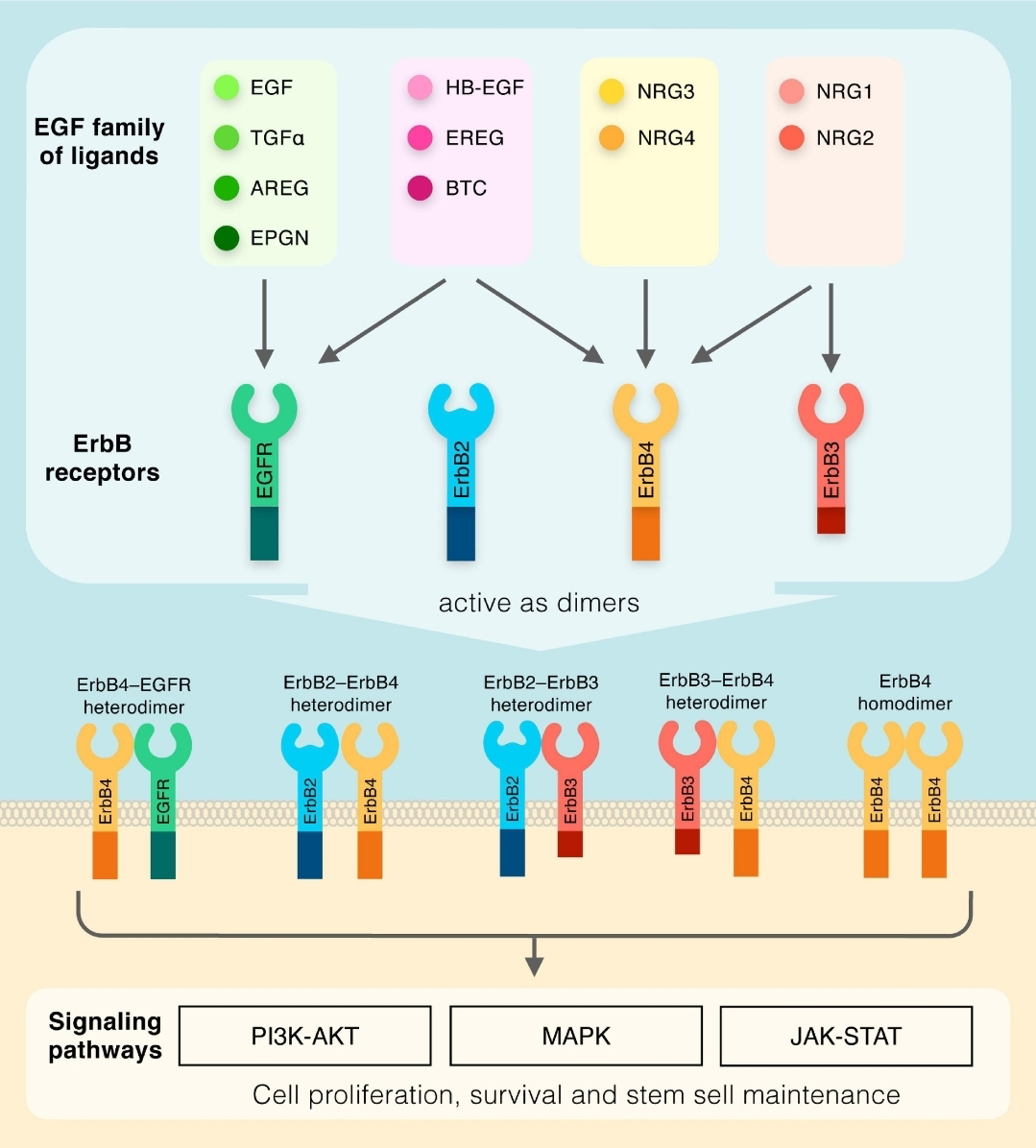Epi-regulating the Brain: Unveiling the Code of Cortical Expansion
The human brain, with its intricate folds and remarkable processing power, stands out amongst the animal kingdom. This evolutionary marvel, particularly the enlarged and folded cerebral cortex, is linked to our complex cognitive abilities. But how did our brains achieve this impressive size and complexity? Recent research delves into the fascinating world of epigenetics, revealing a key player: epi-regulation of the growth factor Epiregulin.
The cerebral cortex, the outermost layer of the brain responsible for higher-order functions, boasts a significantly larger number of neurons and glial cells in humans compared to other mammals, particularly rodents like mice. Interestingly, the basic process of creating these cells, neurogenesis, is quite similar across mammals. The secret lies in how efficiently these progenitor cells multiply during fetal development.
There are two main types of neural progenitor cells (NPCs) at play: apical progenitor cells (APCs) and basal progenitor cells (BPs). APCs reside in the inner layer and divide to generate more APCs or BPs. BPs, located closer to the outer surface, are responsible for producing neurons. The expansion of the cerebral cortex hinges on the abundance of BPs and their subsequent cell divisions.
Here's where the story gets interesting. In species with a smooth, unfurrowed cortex (lissencephalic), like mice, APCs generate few BPs, and these BPs typically divide only once, producing just two neurons each. This limited expansion results in a smaller, simpler brain.
In contrast, species with a large, folded cortex (gyrencephalic), like humans and other primates, exhibit a different dynamic. APCs churn out a vast number of BPs, which then undergo multiple rounds of cell division, amplifying their numbers significantly. This explosion in BPs translates to a massive increase in neuron production, ultimately leading to a larger and more intricate cortex with its characteristic folds.
So, what drives this difference in NPC behavior? Enter epigenetics, the study of how gene expression is regulated without altering the underlying DNA sequence.
Recent research points to the growth factor Epiregulin as a crucial player in this process.
Epiregulin belongs to a family of proteins known as epidermal growth factors (EGFs) that play a vital role in cell proliferation and differentiation. Researchers discovered that Epiregulin is expressed in the developing cortex of primates and ferrets, but not in mice. This suggests a potential link between Epiregulin expression and the evolutionary expansion of the cortex.
Further investigation revealed that treating cortical organoids (3D lab-grown brain tissue models) with Epiregulin significantly increased the proliferation of gorilla BPs, but not human BPs. This suggests that while Epiregulin plays a role in promoting BP division, its precise effect may vary across species.
Another key finding involves the competition between Epiregulin and another EGF, Epidermal Growth Factor (EGF), for binding to the same receptor on the cell surface.
Blocking this receptor abrogated (cancelled out) the Epiregulin-mediated increase in BPs, suggesting a delicate balance between these growth factors in regulating cell division.
The researchers also identified potential regulatory elements in the DNA that might be responsible for the observed differences in Epiregulin expression between species. These elements could be acting as molecular switches, turning Epiregulin expression on or off depending on the evolutionary lineage.
These findings offer a glimpse into the intricate dance of epigenetics in shaping brain evolution. By regulating the expression of key growth factors like Epiregulin, organisms can fine-tune the proliferation of neural progenitor cells, ultimately influencing the size and complexity of the brain.
However, this research is still in its early stages. Further studies are needed to fully understand the precise mechanisms by which Epiregulin and other epigenetic factors influence cortical development. Additionally, the potential role of environmental factors in modulating these epigenetic processes remains to be explored.
Unraveling the secrets of brain growth evolution not only offers a deeper understanding of human cognition but may also hold future implications. If we can understand the mechanisms that regulate NPC behavior, it could pave the way for potential therapies aimed at promoting brain repair or even cognitive enhancement. However, the ethical considerations surrounding such possibilities must be carefully considered.
"epi-regulating" the brain, as the title suggests, goes beyond simply influencing gene expression. It reveals a captivating story of how the interplay between genes and their regulatory elements orchestrates the remarkable diversity of brain structures across the animal kingdom. As we continue to decipher this epigenetic code, we unlock new avenues for appreciating the magnificent complexity of the human brain and its evolutionary journey.
Epi-regulating the Human Advantage: A Neo-Darwinian Twist
The human brain stands out for its size and complexity, attributed to an enlarged cerebral cortex. A recent study titled "Epi-regulate my brain" sheds light on the evolutionary mechanisms behind this. It proposes that the growth factor Epiregulin, regulated by epigenetics (chemical modifications that influence gene expression), played a key role.
Here's how this challenges the traditional view of Neo-Darwinism:
Neo-Darwinism 101: This theory emphasizes random mutations and natural selection. Favorable mutations are passed on, leading to gradual adaptations.
The Epiregulin Challenge: The study suggests a more nuanced picture. Epiregulin isn't a new gene but an existing one regulated differently during development. This implies that the environment or internal cues can influence how genes are expressed, leading to adaptations without necessarily requiring permanent changes in the DNA sequence itself per evolution. This challenges the idea of purely random mutations as the sole driver of evolution.
Beyond Random: Epigenetic modifications can be influenced by factors like nutrition or stress. This suggests that environmental pressures, not just random chance, play a major role in shaping brain development during critical windows. This adds another layer of complexity to the evolutionary story.
The Takeaway: "Epi-regulate my brain" seriously changes Neo-Darwinism. It highlights the importance of epigenetics in fine-tuning existing genes and potentially accelerating adaptations. This discovery opens avenues for further research on how our environment and behavior might influence brain development and evolution.






Comments
Post a Comment